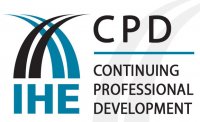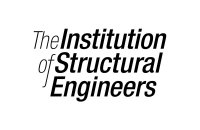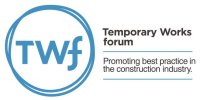This course is targeted at non-engineering professionals involved in land promotion or land development to raise their awareness, knowledge and understanding of drainage, and to provide non-engineering professionals with an appreciation of the drainage matters that need to be considered when promoting or developing a site.
This course includes the use of online tools produced by HR Wallingford. To ensure the course remains as productive as possible, delegates will need to visit HR Wallingford's website and create a free account for use on the day. A login and password can be sought by signing up via https://www.uksuds.com/.
Also available as an online training course.
Please note that the online version of this training course will be split into modules.
Overview:
The course will examine the constraints and opportunities presented by drainage when developing a site. It will consider both piped networks and Sustainable Drainage Systems (SuDS) and how they can be integrated into a site masterplan.
The requirement and contents of a Flood Risk Assessment and foul and surface water strategies will be explained together with associated matters such as adoption, maintenance and the inspection of existing systems.
The course will also provide checklists to assist non-engineering professionals to review engineering drawings to ensure that the salient matters have been considered.
Aims & Objectives:
The course will enable delegates to develop a deeper understanding of foul and surface water drainage and its incorporation into land development proposals. It will:
· Explain how existing drainage systems can be traced, surveyed and recorded
· Outline how underground pipe networks are designed and operate
· Consider the need for Sustainable Drainage Systems
· Discuss the key drainage issues and ensure that they are integrated into a development masterplan
· Outline the approvals, permissions and agreements required by drainage systems
· Explain Flood Risk Assessments, foul and surface water strategies
· Discuss adoption and maintenance strategies
· Provide checklists to enable non-engineers to ensure that drainage matters have been considered sufficiently
Course Outline:
- Opening
- Introduction
- A brief history of sewers
- Types of drainage systems (foul water, stormwater, pumped systems, land drainage)
- Considerations when draining a site including sources for desk-top review
- Existing drainage systems
- Cleaning
- Tracing existing drainage systems
- Topographical survey
- Recording information
- Structural failures
- Pipe rehabilitation
- New piped drainage systems
- Parameters that Influence a Drainage Layout
- Laying out a new Drainage System
- Sustainable Drainage Systems (SuDS)
- The Water Cycle
- Effects of Urbanisation
- Effects of Climate Change
- Components of a SuDS drainage system
- SuDS Management Train
- SuDS Hierarchy
- Drainage Masterplanning
- Establish a vision acknowledging national and local planning requirements
- Review the topography, identifying the existing drainage patterns
- Review key constraints and the likely outfall locations
- Determine allowable discharge rates
- Determine water quality requirements.
- Determine the storage and attenuation required
- Consider the drainage features that are required
- Consider how drainage can be integrated with other requirements such as landscaping or open space
- Preparation of an adoption and maintenance strategy
- Identify overland flood flow routes
- Drainage approvals, permissions, and agreements
- Flood Risk Assessment, foul and surface water drainage strategy
- Flood Risk Assessment
- Surface Water Drainage Strategy
- Foul Water drainage Strategy
- Review of drainage reports and drawings for non-engineering professionals
Mode of Delivery:
· General introduction followed by assessment of needs and capabilities of delegates
· Presentation by tutor using PowerPoint, with illustrations, photographs etc.
· Group and individual exercises
· Course review and summary
Intended For:
Engineers, planners, lawyers, land agents, estate managers with no requirement for a mathematical aptitude.








